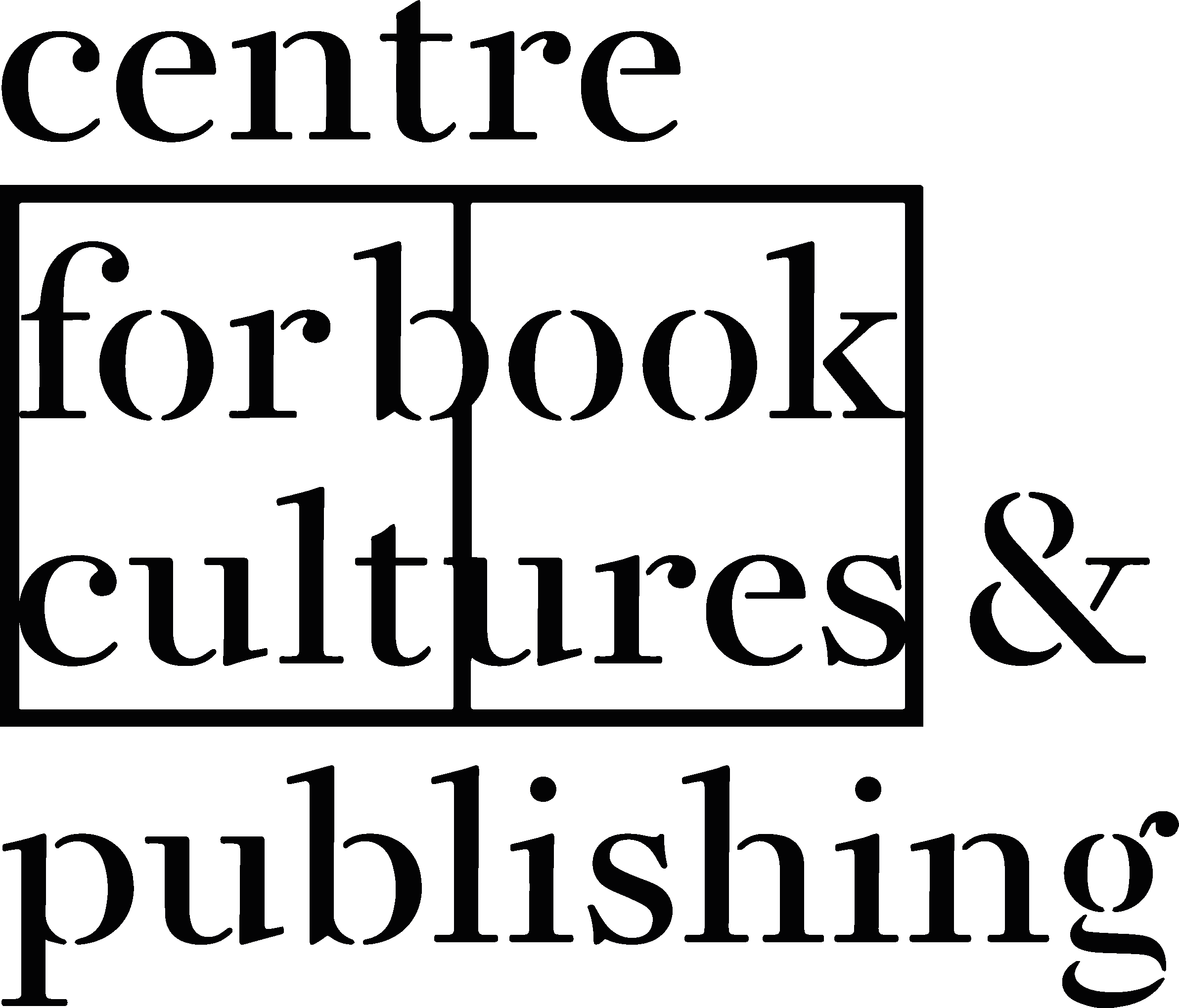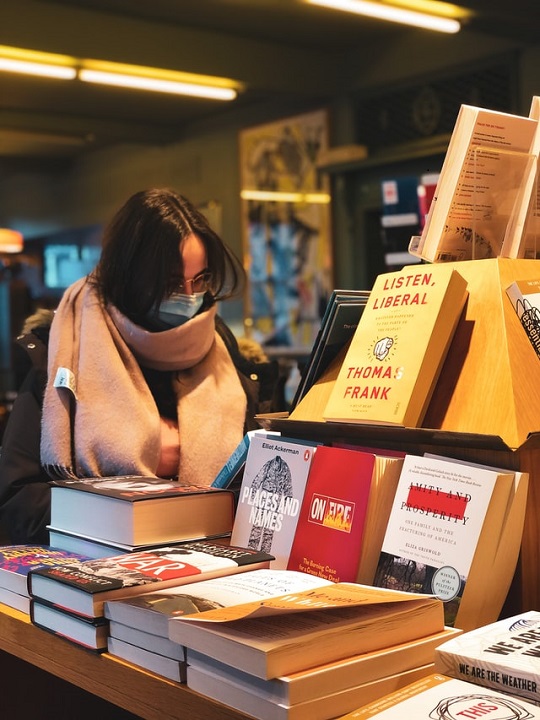by Maria Vassilopoulos, Trade and Export Sales and Marketing Manager at British Library Publishing
As the Publishing Sales Manager for the British Library and a PhD researcher working on a thesis focusing on the British book trade of the 19th and 20th centuries, I found myself in an interesting position when the lockdown was announced in March last year. I was living and working through an incomparable historical event. A friend who works as head of digital at a well-known book chain asked me if I could find any other point in the trade’s past where all bookshops had closed at once and were likely to remain closed for weeks. He wanted to include it in an email to their booksellers across England, Scotland, and Wales. I replied that although World War 2 saw Paternoster Row, then the epicentre of the book trade, destroyed by the Blitz, the industry, with the Publishers’ Association and the Booksellers’ Association at the helm, stayed open and worked around the many challenges they faced.
There is nothing comparable to every British bookshop, library, museum, gallery, gift shop, department store, and train station booth shutting simultaneously on the same day and not reopening until the Government deemed it safe. Two significant factors influenced the business of booksellers during lockdown; where they resided in the United Kingdom and what type of business they were. As the Government applied the label “non-essential” to bookselling, larger bookshop chains such as Waterstones and Blackwell’s opted for a mixture of click and collect and online-only services. They went down to a skeleton staffing in their head offices and furloughed staff. W. H. Smith’s sell convenience foods, so some of its branches could remain open. Supermarkets were deemed ‘essential’ and could sell books in non-essential sections.
However, the independently-owned bookshops on Britain’s high streets lost their communities, their school customers, and events overnight. They were left vulnerable to larger online retailers, offering books cheaper and quicker. There were even bookshops that did not have a website and took to social media daily and hourly to remind people that the shop might be closed, but they were still open. Many booksellers, my customers, were driven through this period by the simple desires to keep going, get books into customers’ hands, and ensure their survival. New online site Bookshop.org began towards the Autumn of 2020 and provided some booksellers with the chance to have a digital presence and sell books they didn’t have to buy first. Powered by wholesaler Gardner’s, the site allows bookshops to earn a cut of any sales made, and for some booksellers, it marked the first time they had sold online.
This activity was seen as progressive by some, speeding up the so-called digital revolution. However, others found it alarming that the loss of their physical livelihoods could become a reality and that there was “no heart and soul,” as one bookseller told me, left in their shop. No customers on the high street became a necessary way of life rather than a human choice. I sat and watched Facebook Lives, where books were held up, whilst music was played in the background and believed I was doing my bit as I daily retweeted all the shops asking for custom. These bookshops are my customers, and although there were periods where it would have been insensitive for me to start pitching books to them, instead, I spent hours on the phone or on social media chatting or supporting their efforts. The digital revolution was being spoken about in the press, but I witnessed the ways in which human connections were made using this same technology, and I know my contemporaries in other publishers experienced this too.
We are now emerging from lockdown, with our reps, bookshop customers, and buyers feeling like we have faced the last year together. We consoled each other through those long months of 2020 and into the beginning of this year. Buyers and those on furlough are reuniting with us. Booksellers are selling again in their shops and are not reliant on social media in quite the same way. They are also buying books from publishers, which pre-Covid would not have meant as much as it does now when they choose one of our titles. I will leave you with a quote from Emma Corfield-Waters, who runs the award-winning bookshop Book-ish in Crickhowell, Wales. She explains how the physicality of bookselling has survived and that booksellers are actively sourcing books from small presses and collaborating much more. Moreover, those of us selling books, whether at publisher or bookshop level, are all determined to keep positive and support each other:
“Covid has meant that indie booksellers have has to become even more creative, harness new skills and ways of communicating with their customers and wider community. What this means is that coming out of the pandemic booksellers are even better equipped to deal with challenges, they have new customers, a wider reach and a new approach and determination to get books into people’s hands, including looking beyond the big publishing houses, collaborating with indie presses more frequently and investing in points of difference.”
Maria Vassilopoulos is the Trade and Export Sales and Marketing Manager at British Library Publishing and works across UK and Export sales, marketing, and social media. She is about to complete a PhD on the British book trade in the nineteenth and early twentieth centuries and is writing a history of the Book Society (Society of Bookmen) amongst other projects such as a short history of the Publishers’ Association, and a chapter on women booksellers of the twentieth century.


